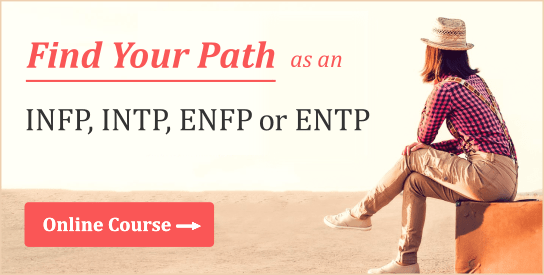
If you’re an intuitive (N) type, there’s a good chance that, at some point in your life, you’ve worked a day job you felt “isn’t worth my time.” Intuitives (myself included) can exhibit a sense of entitlement or finickiness when it comes to their careers. Insofar as they fancy themselves special or unique—distinct from the sensing (S) masses—they feel they should be exempt from anything resembling mundane labor.
But what is it, exactly, that intuitives resist about ordinary work and what are they looking for instead?
Flow, Challenge & Engagement
For starters, intuitives are apt to see routine work as boring, monotonous, or unchallenging. This relates to Mihaly Csikszentmihalyi’s work on flow states, which he considers the optimal type of human experience. Flow is presumed to occur when a task provides just the right amount of challenge—shooting the middle between boredom (lack of challenge) and undue stress / anxiety (too demanding). It represents a sort of “sweet spot” for human attention and engagement.
Whatever its virtues, flow doesn’t give us the full scoop on intuitives’ workplace predicament. Let’s imagine, for a moment, an N type whose primary work role is flipping hamburgers. If the pace is too slow, she will probably get bored. But if we dial up the pace to the point where it’s more challenging and requires more attention, she may well achieve a flow state and her work shift may pass rather quickly. If this were to happen regularly, she couldn’t really claim to be bored at her work, since her attention is engaged. But does this mean she’ll be happy with the job?
I suspect that many, if not most, intuitives would still claim to be dissatisfied. Even if the work is challenging enough to demand their full attention, they would rather find flow doing something else—something more meaningful than flipping burgers. In other words, they are apt to believe that flow, at least by itself, doesn’t guarantee that a job or career will be meaningful.
Abstract Views of a “Meaningful” Career
Of course, what we deem a “meaningful” career is subjective and contextual. For instance, if we haven’t eaten in days, preparing a hamburger would likely feel immensely meaningful. In the context of modern society, however, employment in the fast food industry is considered “unskilled labor”—low status, low respect work. So even though fast food (however imperfectly) satisfies one of our most basic survival needs, because of its distasteful (no pun intended) social perceptions, we consider it less meaningful than other types of work.
Perceptions of meaning are also influenced by our personal goals and values. Many intuitives aspire to perform some sort of creative or investigative work, which suggests they consider these activities meaningful. If we dig a little deeper, we often discover that N types have previously enjoyed and been affirmed for their talents in these areas, contributing to their perceived meaningfulness.
Our personal goals and core values mediate meaning abstractly by way of ideas and self-narratives. While an individual may derive concrete enjoyment from an activity like creating art, embracing it as a core value or guiding idea (e.g., “I enjoy and want to perform creative work.”) is an act of abstraction.
Flow states, by contrast, are predominantly concrete experiences of meaning. Emerging spontaneously through engagement with a particular type of task or challenge, they are less reliant on a superseding self-narrative.
When Creative Flow is Blocked
We’ve already seen how N types are reluctant to use flow as their sole criterion for meaningful work. But what about abstract meaning? Is it sufficient on its own?
Even intuitives who are living the dream and working in a creative field can struggle with creative blocks. Think of the writer, for instance, perched at his laptop for hours and unable to muster a single worthy paragraph. These sorts of blocks prohibit creative flow and can be incredibly frustrating. So even if a dream job is abundant in abstract meaning, it’s not very dreamy if flow is absent.
Intuitives who experience longer-term blocks, in which the creative well has seemingly run dry, may at some point be tempted to rethink their goals and values. Desperate to rediscover flow, they may start experimenting with other types of work, curious to see if there’s water to be found somewhere else. Interestingly, some may even discover that mundane tasks, previously viewed as lacking meaning or import, now seem more desirable, even therapeutic, vis-à-vis the frustration of creative roadblocks. Intuitives may in turn start questioning some of their long-held beliefs about what constitutes meaningful work: Is it true that abstract beliefs or activities are really more meaningful, or is this merely a matter of opinion? Is art or religion any more important than exercise, cooking, or yardwork?
One could argue that what distinguishes homo sapiens, especially modern humans, from other animals is the world of abstract ideas we inhabit. In other words, it’s largely our penchant for symbols and storytelling that differentiates us as a species. It’s therefore hard to deny that our self-narratives and other abstract identifications are of central importance. While this doesn’t mean they are necessarily true in an objective or scientific sense, it does speak to their psychological utility.
That said, history has now seen a number of sages who claim that such abstractions are unnecessary for (or even detrimental to) human happiness. Their experience, similar to that of the flow state, suggests that full absorption in the present moment can be profoundly satisfying. Nevertheless, I suspect there’s still some sort of underlying narrative (e.g., “Attuning to the present moment is the key to happiness”), however repressed or unconscious, which bolsters and reinforces the meaning they perceive. It’s impossible to fully eliminate either the abstract or concrete elements of meaning.
Concluding Remarks
Our perpetual challenge therefore entails fashioning compelling stories—personally and collectively—as well as identifying reliable paths to concrete meaning. As we’ve seen, concurrently experiencing both abstract and concrete meaning is optimal, although not always readily achieved. As we’ve seen, securing one’s dream job is no guarantee of consistent flow.
That said, finding a career that fits one’s personality type does make flow, not to mention abstract meaning, more likely. Thus, thinking carefully about one’s career path isn’t without merit.
Moreover, creative blocks needn’t be viewed as dead-ends, but in most cases are better seen as temporary obstacles. This suggests that, in addition to abstract and concrete meaning, there’s a third factor, which we might call perseverance or commitment, that is also foundational to maximizing satisfaction in life and work.
If you’re an intuitive looking to clarify and realize your life purpose, career path, and more, be sure to explore our online course, Finding Your Path as an INFP, INTP, ENFP or ENTP.
Related Posts:
Careers & Majors for Intuitive Types
The “Day Job” Reconsidered: Insights for Artists & Creative Types

Dawn Upham says
“I wish I knew then what I know now…” would have made my work life much easier. From your test, I identify as an INFP. My career path took me into the military as a radio technician and later as a computer network technician. I felt motivated when I was learning but then found the actual “fixing” of broken things very boring. I identified strongly with the core values of the military but became disillusioned when very few people actually lived out these values. It was also distressing for me when people did not get along with each other.
I have counselled my own children to find meaning within their work lives. One son works at Walmart and is happy with his work. I know how many obstacles he has had to overcome with regard to health issues to do this work. One of the most wonderful things for me has been to find that his work is finally valued in these days of Covid 19! I have been telling him for years that what he does is important because retail workers make it possible for all others to fulfill basic needs such as obtaining food and clothing.
My youngest son works in government. I have always counselled him to work with integrity and seek out the truth. He has had the opportunity to do this and it brings him great satisfaction.
I love reading your articles. In today’s article, you stated that INFPs might have trouble fitting into academic settings. I recently finished a lay diploma in theology (at the ripe old age of 63)and must say I struggled with it, even though I got good grades. I realize now that the struggle was not so much with the subject matter but with the actual institution of academia. Thank you for that.
A.J. Drenth says
Thanks so much for your sharing your reflections and experiences Dawn!
Marcia Reisz says
So very insightful, Mr. Drenth! I am a 64 year old INTJ lady. When I was young, in my 20s, I was driven by the desire to have a secure job and income since that was the opposite way to go for my family of … ummm *low achieving* siblings. As I settled into my corporate job, I came to a point where achievement had been obtained but was not as satisfying as I hoped. In an indirect way I was helping many people by making sure our pharmaceuticals were made to specifications, but it was not enough. I found other non-work activities that were more creative and satisfying. Such as jewelry making, crocheting for charity and the like. I never understood my co-workers mundane, superficial (to me) interests. But now I know that I am different and I accept myself now.
Enough of this rambling blah-blah *S*. Thanks again for your wonderful insights!
Marcia R.
A.J. Drenth says
You’re welcome Marcia. Thanks for sharing your experiences!